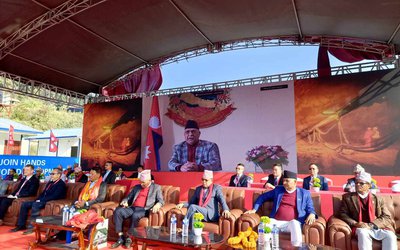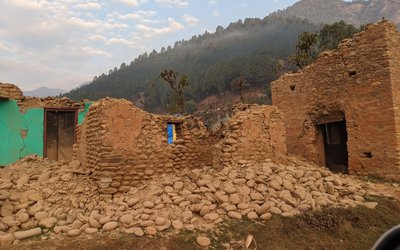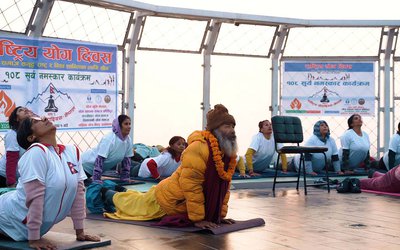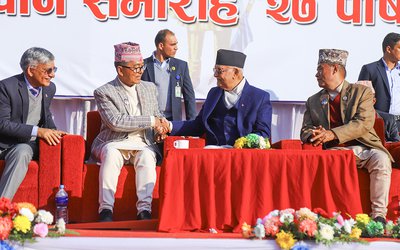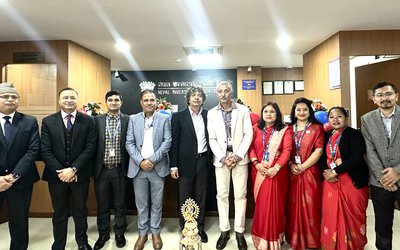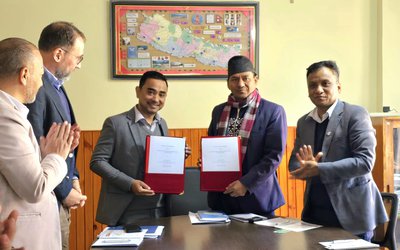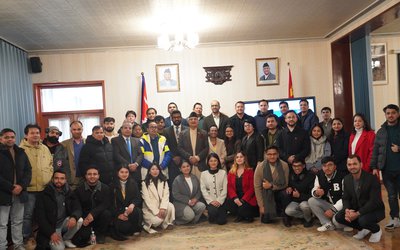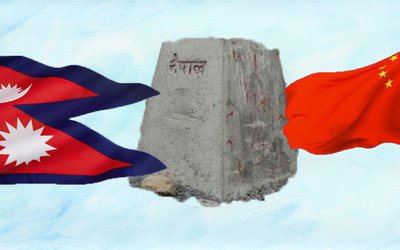
Newly appointed Ambassador and Head of the Delegation of the European Union to Nepal, Ms. Nona Deprez, presented her credentials to President Bidhya Devi Bhandari at a special function organized at the presidential office on 27 September.
“I am extremely honoured and happy to take up my duties as the EU Ambassador to Nepal and look forward to discover the country, to meet the Nepalese and to work closely with all Nepali institutions, civil society, private sector, media, international partners and all relevant political, social and economic stakeholders,” Ambassador Deprez said.
Nepal and the EU have developed more than four decades of diplomatic and friendly relations. The need to work jointly on global issues in the wake of new challenges such as pandemics, climate change and threat to multilateralism has become an urgency, Ambassador Deprez added.

The EU has been a reliable development partner and one of the biggest donors to Nepal for around half a century. It has been cooperating on three priorities agreed with the Government of Nepal: rural development, education and finally democracy and decentralization. Furthermore, the EU supports Nepal in achieving the Sustainable Development Goals, in graduating from LDC status and in improving Nepal’s resilience to the adverse effects of climate change. The total assistance for the current programming cycle, 2014-2020, amounts for EURO 360 million, around Rs 50 billion.
When the COVID crisis hit Nepal, the European Union provided immediate response in mobilising a package of EURO 75 million (Rs 10 billion). This support was closely coordinated with the EU Member States working as one in a streamlined “Team Europe Initiative”. More globally, the EU helped raise EURO 16 billion to finance research on vaccines, tests and treatments for the whole world.
This pandemic shows the fragility of our globalised world: today, no country is safe until all countries are, and global responses to this systemic challenge require cooperation and coordination based on universal values and rules. They require further multilateralism.
Sharing the same values as Nepal, the EU elaborated the European Green Deal as a means to address collectively the COVID crisis while building up a better, greener future that would fight climate change, protect the environment and biodiversity, and promote sustainable development and sustainable connectivity. We have to “build back better”. For the health and wellbeing of our people.
In a world hit by the pandemic and characterized by power politics, Nepal and the European Union share a lot in common. Our partnership should ensure that we defend the rules-based multilateral order, and ensure that every human being can enjoy the security and rights we sometimes take for granted. It should unite us in designing a shared sustainable future. In addressing all these challenges, and working hand in hand with Nepal, the EU will continue to be a trustworthy, reliable and predictable partner and friend.
- Nepal Investment Mega Bank Ltd Has shifted Its Ganthghar Branch To Exhibition Marg
- Jan 26, 2025
- BEEN: Ensuring Energy-Efficient Building Design To Reduce Carbon Emission
- Jan 26, 2025
- Nepali Embassy Celebrated Chinese New Year In Beijing
- Jan 26, 2025
- Nepal-China Joint Monitoring Of Border Areas
- Jan 26, 2025
- Zelenskyy claims Putin wants to 'manipulate' Trump
- Jan 26, 2025
